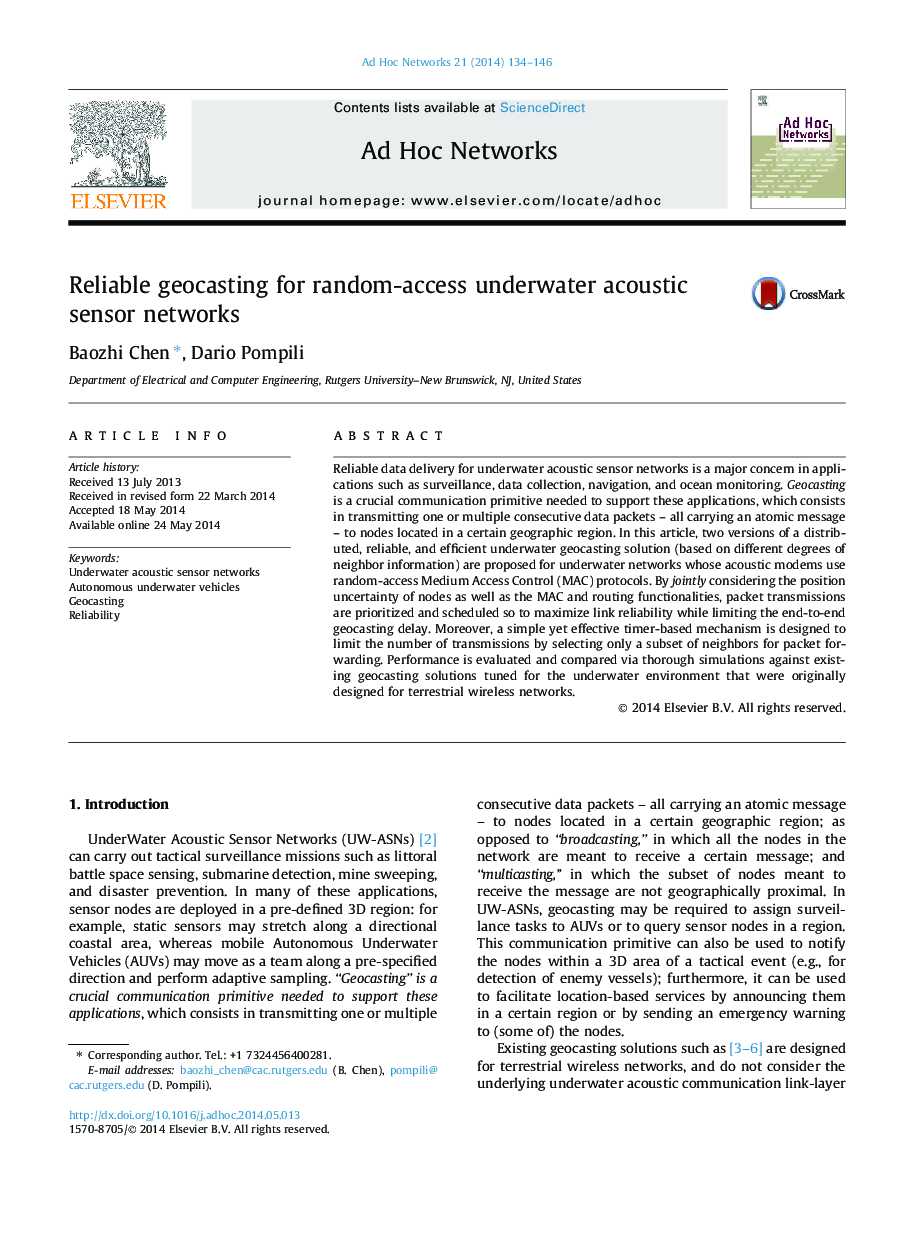| Article ID | Journal | Published Year | Pages | File Type |
|---|---|---|---|---|
| 447986 | Ad Hoc Networks | 2014 | 13 Pages |
Abstract
Reliable data delivery for underwater acoustic sensor networks is a major concern in applications such as surveillance, data collection, navigation, and ocean monitoring. Geocasting is a crucial communication primitive needed to support these applications, which consists in transmitting one or multiple consecutive data packets - all carrying an atomic message - to nodes located in a certain geographic region. In this article, two versions of a distributed, reliable, and efficient underwater geocasting solution (based on different degrees of neighbor information) are proposed for underwater networks whose acoustic modems use random-access Medium Access Control (MAC) protocols. By jointly considering the position uncertainty of nodes as well as the MAC and routing functionalities, packet transmissions are prioritized and scheduled so to maximize link reliability while limiting the end-to-end geocasting delay. Moreover, a simple yet effective timer-based mechanism is designed to limit the number of transmissions by selecting only a subset of neighbors for packet forwarding. Performance is evaluated and compared via thorough simulations against existing geocasting solutions tuned for the underwater environment that were originally designed for terrestrial wireless networks.
Related Topics
Physical Sciences and Engineering
Computer Science
Computer Networks and Communications
Authors
Baozhi Chen, Dario Pompili,
